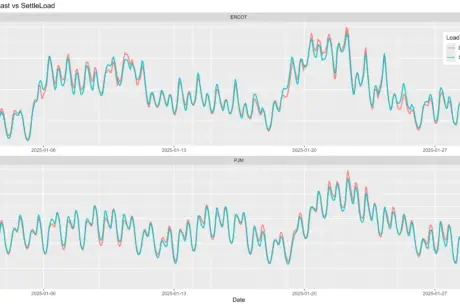In the rapidly evolving energy market, power retailers face increasing challenges, from price volatility to customer demand for greener energy solutions. One way to navigate these challenges effectively is by expanding their network of wholesale trading partners. Greater collaboration in the wholesale market enables power retailers to access diverse resources, stabilize pricing, and enhance their competitive edge. To illustrate, consider the case of a midsized power retailer that transformed its operations by diversifying its wholesale trading partnerships.
Case Study
For this example, let’s call that company PowerEdge Energy. PowerEdge Energy operates in a deregulated market, catering to residential and commercial clients. The company initially relied on a single wholesale trading partner for its energy needs, primarily sourcing electricity from one supplier. This strategy exposed PowerEdge to price fluctuations in the, which often forced the company to pass higher costs on to customers. Additionally, the retailer struggled to meet increasing demand for renewable energy options.
Recognizing the risks of over-reliance on one partner, PowerEdge embarked on a strategy to diversify its wholesale trading partnerships. Over three years, the company-built relationships with multiple energy suppliers. PowerEdge had partnerships with eight different wholesalers, each offering unique advantages.
Advantages of Diversified Wholesale Trading Partners
- Price Stability and Risk Mitigation
PowerEdge’s expanded network enabled it to hedge against market volatility. This allowed the company to offer fixed-rate contracts to its customers, which proved to be a significant competitive advantage. - Access to Renewable Energy Sources
Customers increasingly demand cleaner energy options. PowerEdge was able to introduce new green energy plans, attracting eco-conscious customers and enhancing its brand reputation. The company reported a 25% increase in customer retention, largely attributed to its green energy offerings. - Improved Negotiating Power
Having multiple wholesale trading partners gave PowerEdge leverage in negotiations. Competing offers from suppliers allowed the retailer to secure more favorable contract terms, reducing its overall procurement costs. These savings were reinvested into customer acquisition and technology upgrades. - Operational Flexibility
Diverse partnerships allowed PowerEdge to optimize its energy mix. For example, PowerEdge partner with a new company for their ARR optimization. That leads them to double their ARR revenues.
Broader Implications for Power Retailers
PowerEdge Energy’s success underscores the broader benefits of a diversified wholesale trading strategy. By mitigating risks, accessing renewable options, and enhancing operational flexibility, power retailers can remain competitive in a market defined by innovation and customer-centric solutions. Additionally, these partnerships often foster knowledge-sharing and collaboration, helping retailers adapt to evolving industry regulations and technological advancements.
Conclusion
In today’s dynamic energy landscape, power retailers must prioritize resilience and adaptability. Expanding wholesale trading partnerships is a proven strategy to achieve these goals. The case of PowerEdge Energy demonstrates how leveraging a diverse supplier network can drive growth, stabilize operations, and meet customer expectations. For power retailers aiming to thrive, the key lies in building strong, collaborative relationships across the energy supply chain.
Do you want to add another trading partner that can bring you a competitive advantage?
Contact us:
By: Pierre Labranche, Director of Trading & Origination, ATNV Energy











